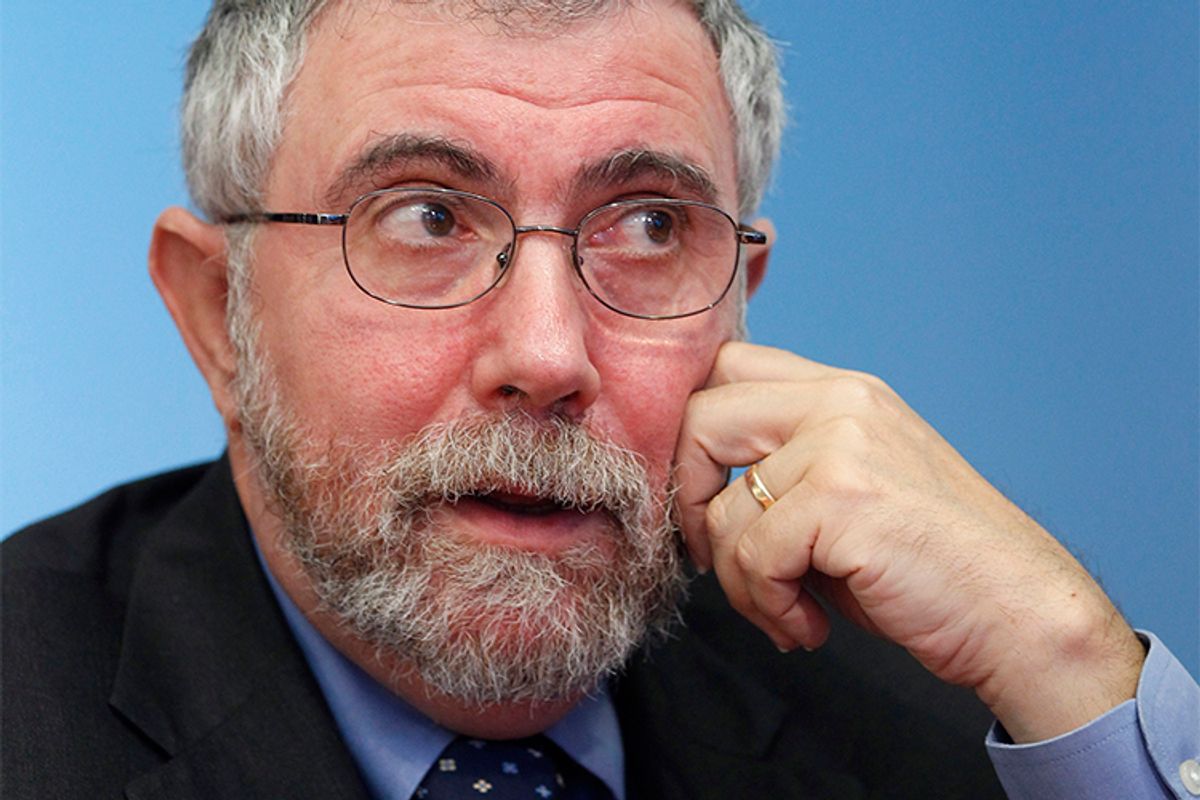In his latest column for the New York Times, Paul Krugman worries that the next global financial crisis may come from Turkey — a nation mired in a political crisis, too.
"[T]he direct global spillovers from Turkey, with its Los Angeles-sized economy, won’t be large," Krugman writes. "But we’re hearing that dreaded word 'contagion' — the kind of contagion that once caused a crisis in Thailand to spread across Asia, more recently caused a crisis in Greece to spread across Europe, and now, everyone worries, might cause Turkey’s troubles to spread across the world’s emerging markets."
Krugman acknowledges Turkey's economic "fundamentals" are "slightly reassuring," but notes that previous financial crises "defied sanguine expectations."
Worse still, the award-winning economist writes that Turkey may be representative of a larger problem, one that's global in scale. The real problem is "secular stagnation," which Krugman defines as "a situation in which the amount people want to save exceeds the volume of investments worth making." If secular stagnation is indeed afflicting the global economy, Krugman warns, the result is "a world economy destined to seesaw between bubbles and depression."
More from Krugman at the New York Times:
The larger point is that Turkey isn’t really the problem; neither are South Africa, Russia, Hungary, India, and whoever else is getting hit right now. The real problem is that the world’s wealthy economies — the United States, the euro area, and smaller players, too — have failed to deal with their own underlying weaknesses. Most obviously, faced with a private sector that wants to save too much and invest too little, we have pursued austerity policies that deepen the forces of depression. Worse yet, all indications are that, by allowing unemployment to fester, we’re depressing our long-run as well as short-run growth prospects, which will depress private investment even more.
Oh, and much of Europe is already at risk of a Japanese-style deflationary trap. An emerging-markets crisis could, all too plausibly, turn that risk into reality.
So Turkey seems to be in serious trouble — and China, a vastly bigger player, is looking a bit shaky, too. But what makes these troubles scary is the underlying weakness of Western economies, a weakness made much worse by really, really bad policies.

Shares